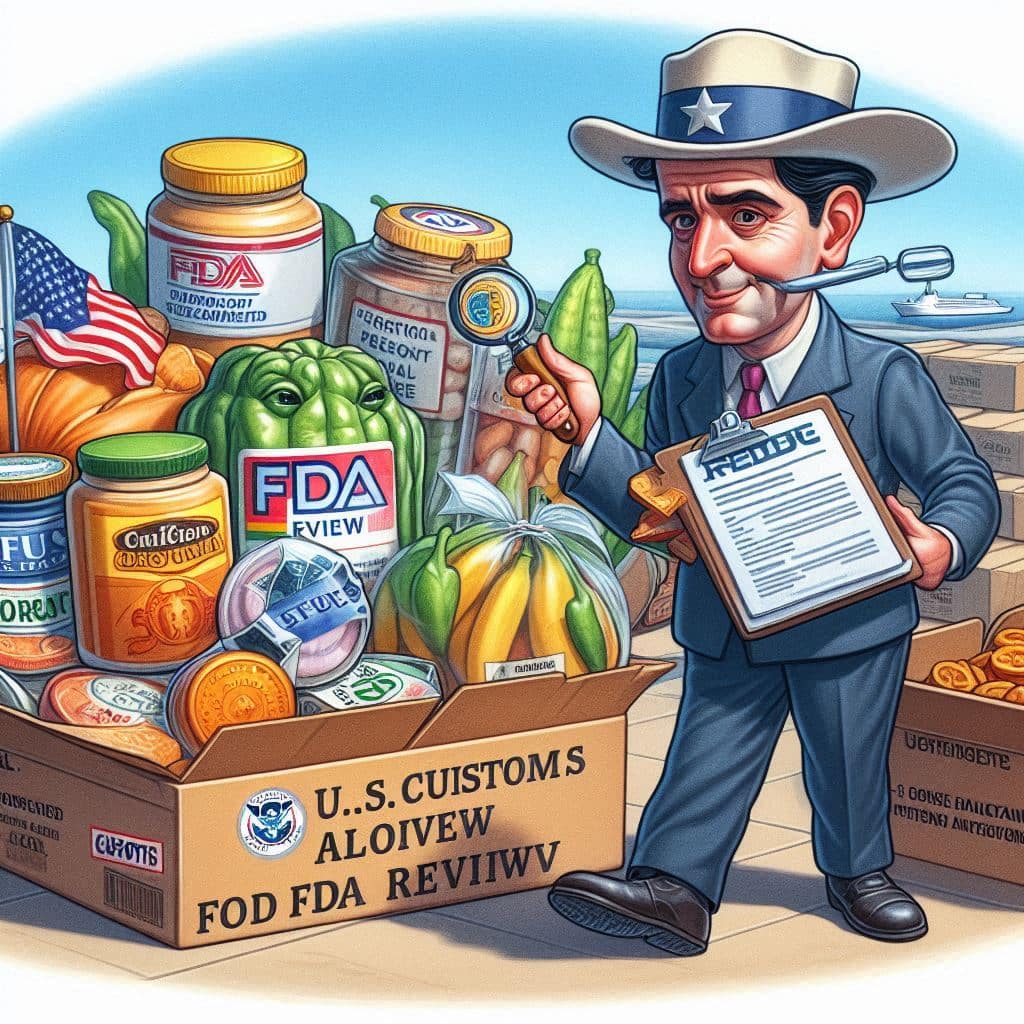Exporting food to the U.S. can be a lucrative business, but it comes with strict requirements—especially when it comes to labeling. Recently, a customer faced a frustrating delay when their shipment was detained at U.S. Customs due to label violations. Let’s break down why this happens and how you can avoid it.
Why Labeling Compliance Matters
⚠️ Statistics show that over 20% of food exported from China to the U.S. is detained due to labeling issues. For newcomers in cross-border e-commerce or international trade, understanding and following FDA regulations is essential. Non-compliance can lead to detention, fines, or even the rejection of your products.

Common Labeling Mistakes to Avoid
1️⃣ Incomplete or Incorrect Nutrition Facts
- The U.S. FDA requires a detailed nutrition label that includes specific information, such as:
- Calories
- Total fat, saturated fat, and trans fat
- Cholesterol
- Protein
- Total sugar and dietary fiber
- Key vitamins and minerals (e.g., Vitamin A, Vitamin C, Calcium, Iron, etc.)
Important: U.S. standards differ from those in other regions like China, the EU, or Hong Kong. Ensure you understand the specific requirements for your target market.
2️⃣ Missing or Improperly Formatted Mandatory Information
- Serving size
- Measurement units
- Daily value percentages
- Any nutritional claims or values
These details must follow strict formatting rules.
3️⃣ Incorrect Net Quantity Declaration
- Always clearly state the precise weight or volume of your product.
4️⃣ Missing Manufacturer or Distributor Information
- Your label must include:
- The name and address of the manufacturer, packer, or distributor.
- The company’s role (e.g., distributor or producer).
- A detailed contact address and contact information.
If you are not the manufacturer, clearly indicate your company’s function (e.g., distributor) to avoid confusion.
How to Stay Compliant
- Understand the Rules: Familiarize yourself with FDA labeling standards, especially if you’re new to cross-border trade.
- Get Professional Support: Work with experts or consult the FDA guidelines to ensure your labels meet requirements.
- Double-Check Before Shipping: Review your labels for accuracy and completeness to prevent costly delays.
Final Thoughts
Label compliance might seem tedious, but it’s a critical step to ensure smooth customs clearance and avoid unnecessary losses. If you’re unsure about your product’s labels, don’t hesitate to reach out for guidance.
Ready to simplify your export journey? Contact us today to learn how we can help you streamline your shipments and stay compliant.
📧 Email: info@zcytsupplychain.com
📞 WhatsApp: +8613316457825
